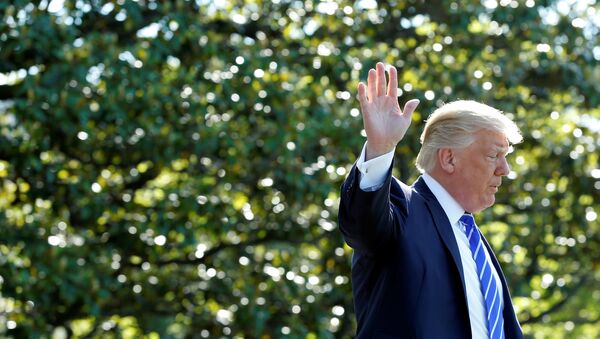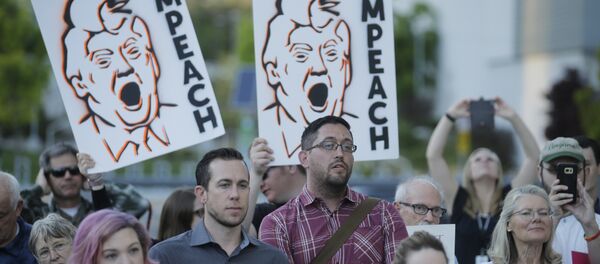Kristian Rouz – US President Donald Trump’s fiscal policy plan might face stiff opposition, not only from his opponents from the Democratic Party, but from his fellow Republicans as well. The plan will be sent to Congress shortly, and Secretary of the Treasury Steven Mnuchin has already called into question the feasibility of the proposed fiscal stimulus and its projected positive effects on US economic growth.
In April, Trump revealed a one-page fiscal initiative, proposing massive business and individual income tax cuts down to 15 percent, as well as optimizing the complicated system of tax brackets. The White House also aims to increase infrastructure spending, and critics of the plan are concerned that the increased costs of the initiative could deepen the federal budget deficit, contributing to increased borrowing by the US government.
However, Mnuchin is not sure whether the Trump-proposed plan will stimulate the economy enough to allow for a massive rebound in business activity, while the deep tax cuts will certainly exacerbate the budget deficit issue.
"What I have said repeatedly is that any plan we put forward we believe should be paid for with economic growth," Mnuchin said, speaking before the Senate Banking Committee. "I am concerned as to whether some of the models will attribute enough growth in dynamic scoring but when we present the details we will present how we think it should be paid for."
What we currently know about Trump’s fiscal plan as inferred from the one-page overview penned in April is not enough to make any conclusions on its feasibility and likely effects on revenue neutrality and the budget deficit. Mnuchin’s point is the plan should, while maintaining its pro-growth spirit, also take into account Congressional Republicans’ view of fiscal policy for the sake of quicker implementation.
"I believe that a goal of three percent GDP or higher economic growth is achievable if we make historic reforms to both taxes and regulation," Mnuchin said.
Social Security and Medicaid spending will remain at their current levels, which might soften the Democrats’ stance on the matter; however, the proposed cuts in foreign aid and overall international spending are likely to produce outrage among Republicans.
The Trump administration, meanwhile, said that under the proposed fiscal plan, US economic growth will achieve a sustainable 3 percent per year by 2021. Meanwhile, last year, the US economy expanded by 1.6 percent, and this year started to slow down, growing at an annualized rate of 0.7 percent in the first quarter.
With his proposed tax plan, Trump is aiming to lay the cornerstone of a new fiscal policy that will result in a balanced budget in ten years, with all the initial increased spending to be made up for with quicker growth throughout the next decade.
However, it is not guaranteed that lower tax rates will universally benefit everybody. While taxes may go down, the elimination of certain existing tax deductions and exemptions will possibly result in tax obligations remaining the same or rising for many Americans. This, in turn, might hinder the expansion in consumer sentiment and spending. With domestic consumption driving some 72 percent of the US economy, the negligible effects of the tax reform on certain American households might make it not so much of a stimulus.
"I can assure you the president's objective and my objective is we create a middle income tax cut and we do not raise taxes on the middle income, if anything the opposite," Mnuchin said.
Mnuchin added that tax deductions are mostly taken advantage of by the upper class, and their elimination would not undermine the well-being of average American households.
“It will be a process of negotiation,” Senate Majority Leader Mitch McConnell said. “We haven’t paid a whole lot of attention to any president’s budget since I’ve been here.”
Meanwhile, doubt is brewing among investors and even within the US government itself regarding the depth of the tax cuts the White House will be able to negotiate in Congress. After all, after taking into account the interests of all parties involved in Washington decision-making, the compromise tax plan might arrive later than currently scheduled, and provide more modest support to the economy.
Mnuchin remains optimistic, though. "I am still very hopeful that we'll get tax reform done this year," he said.




